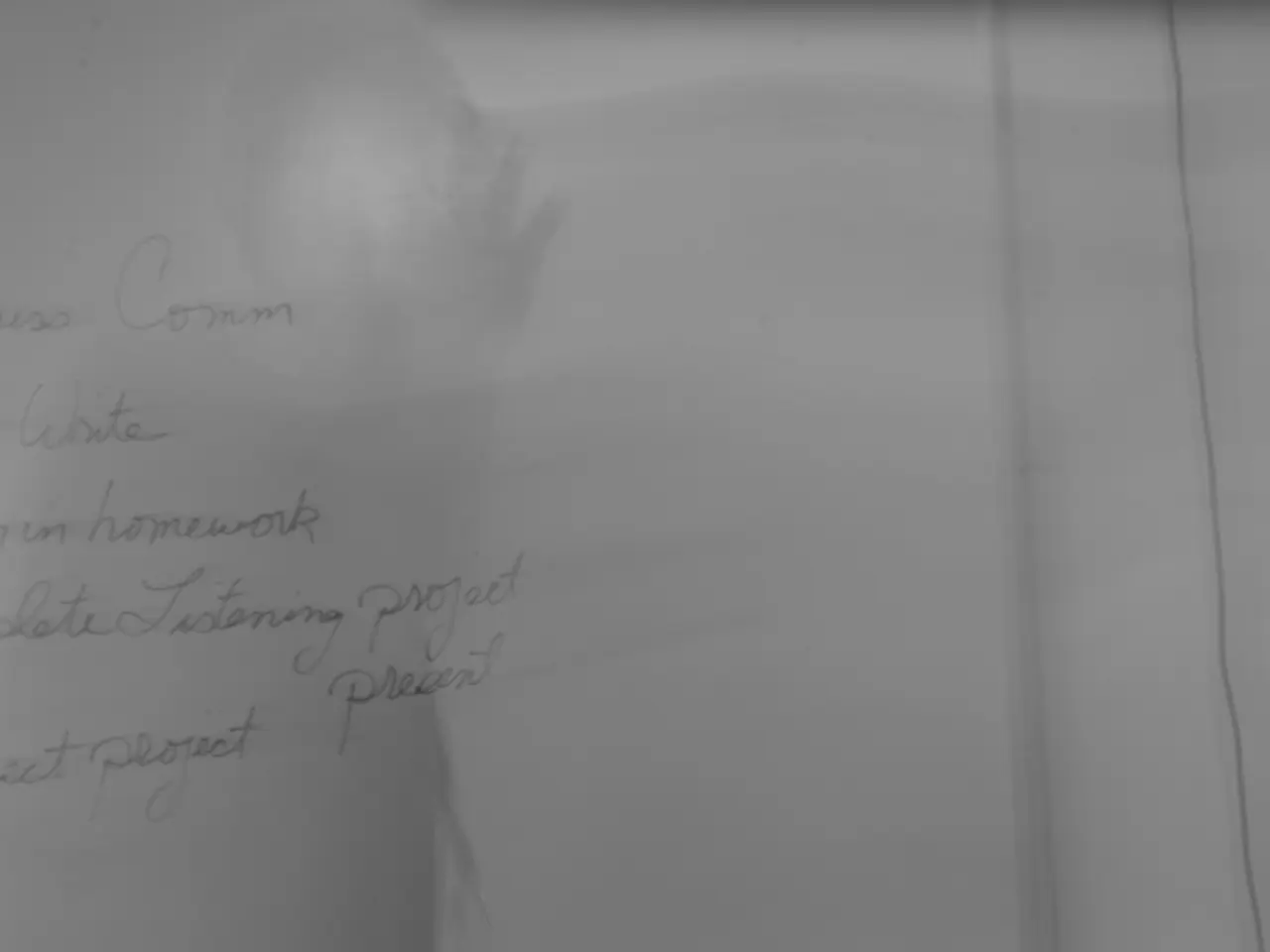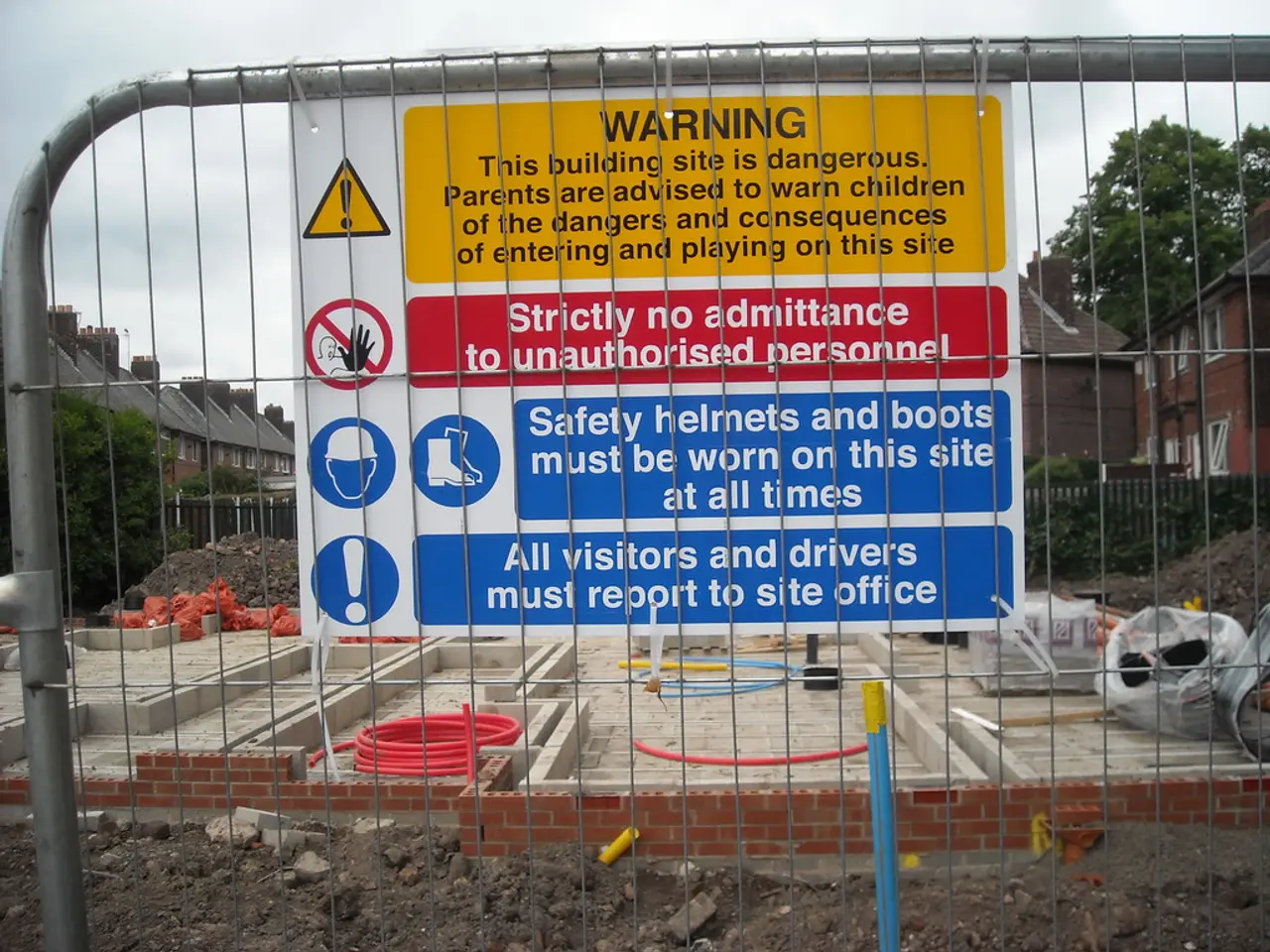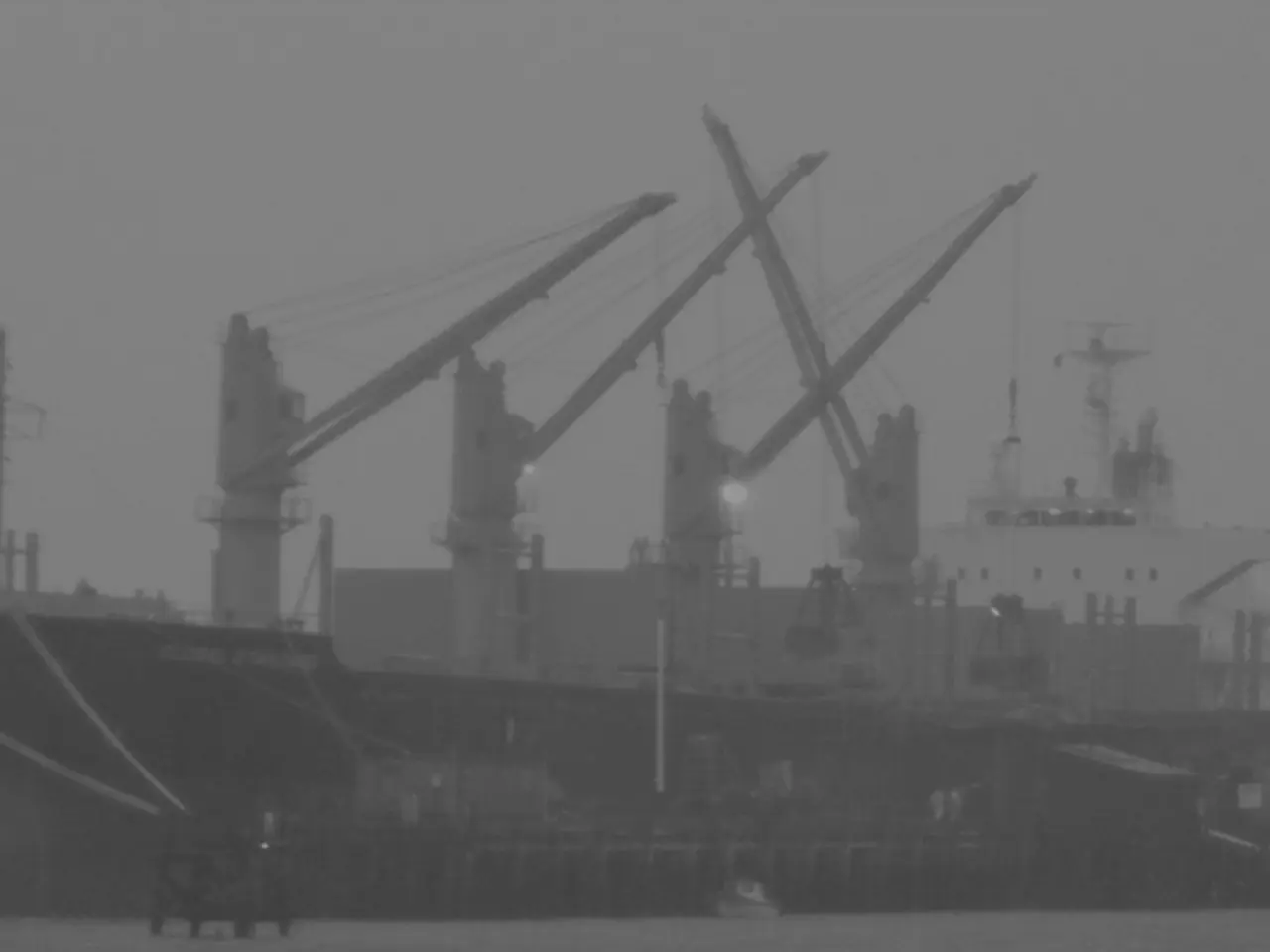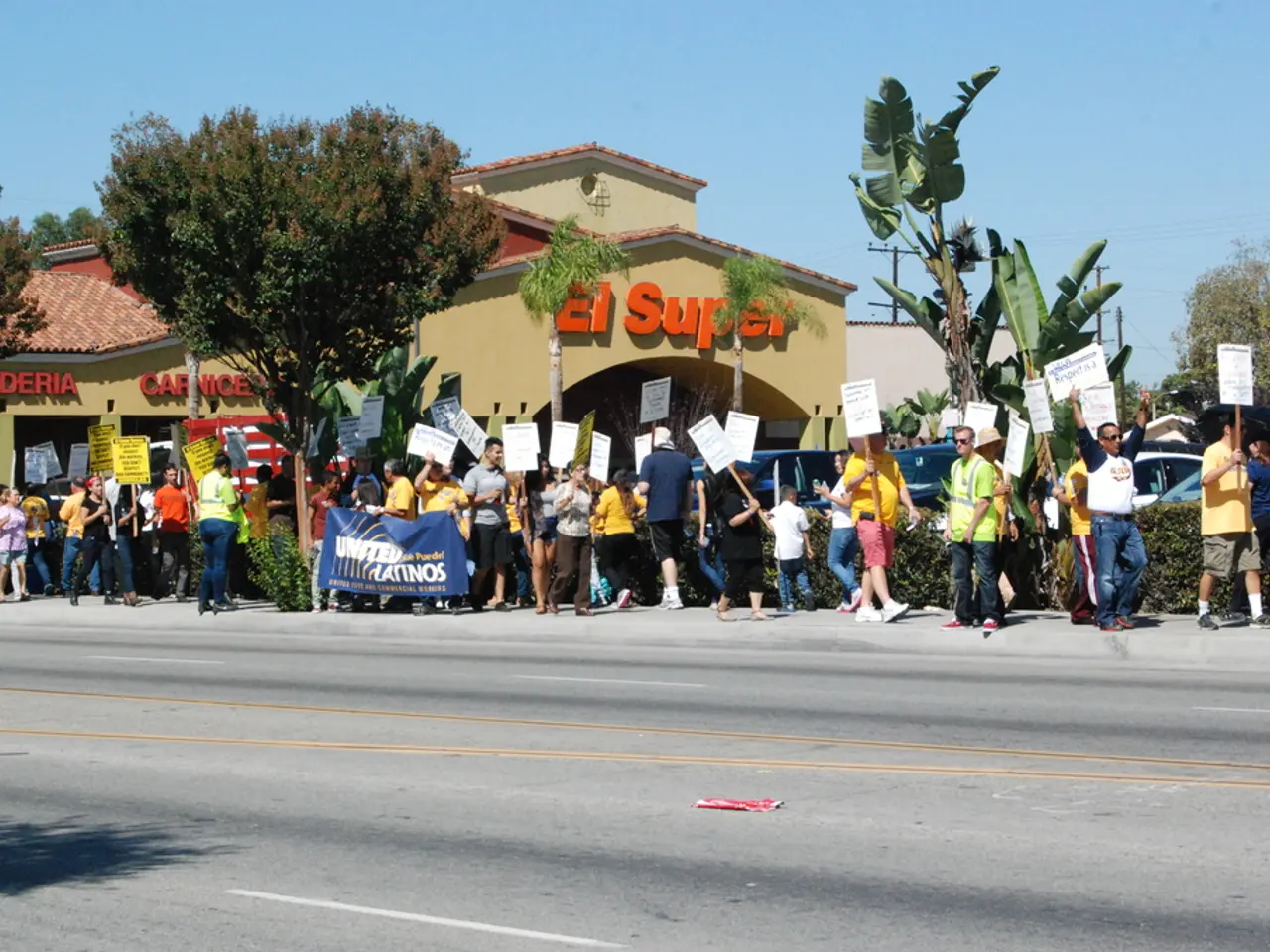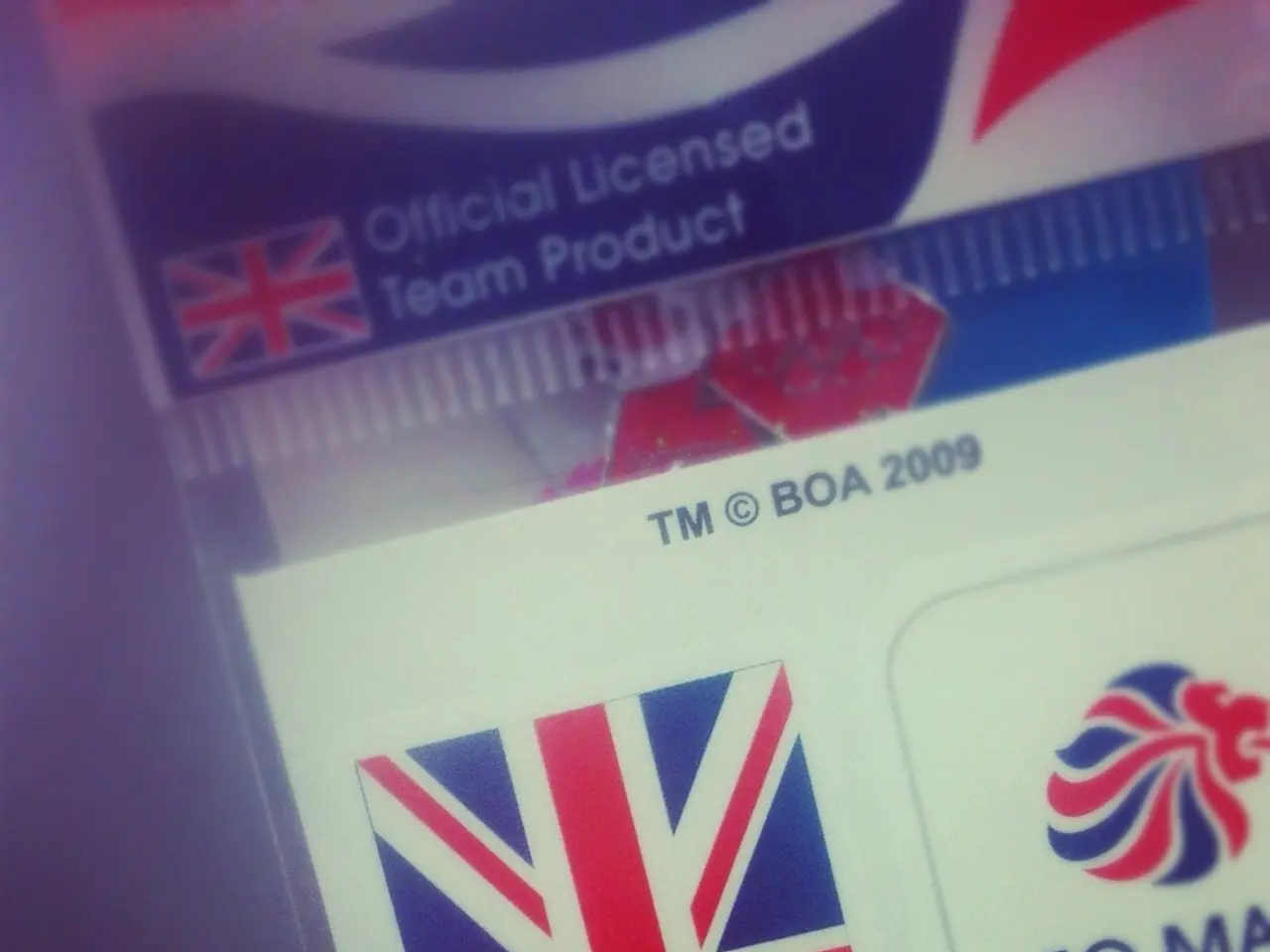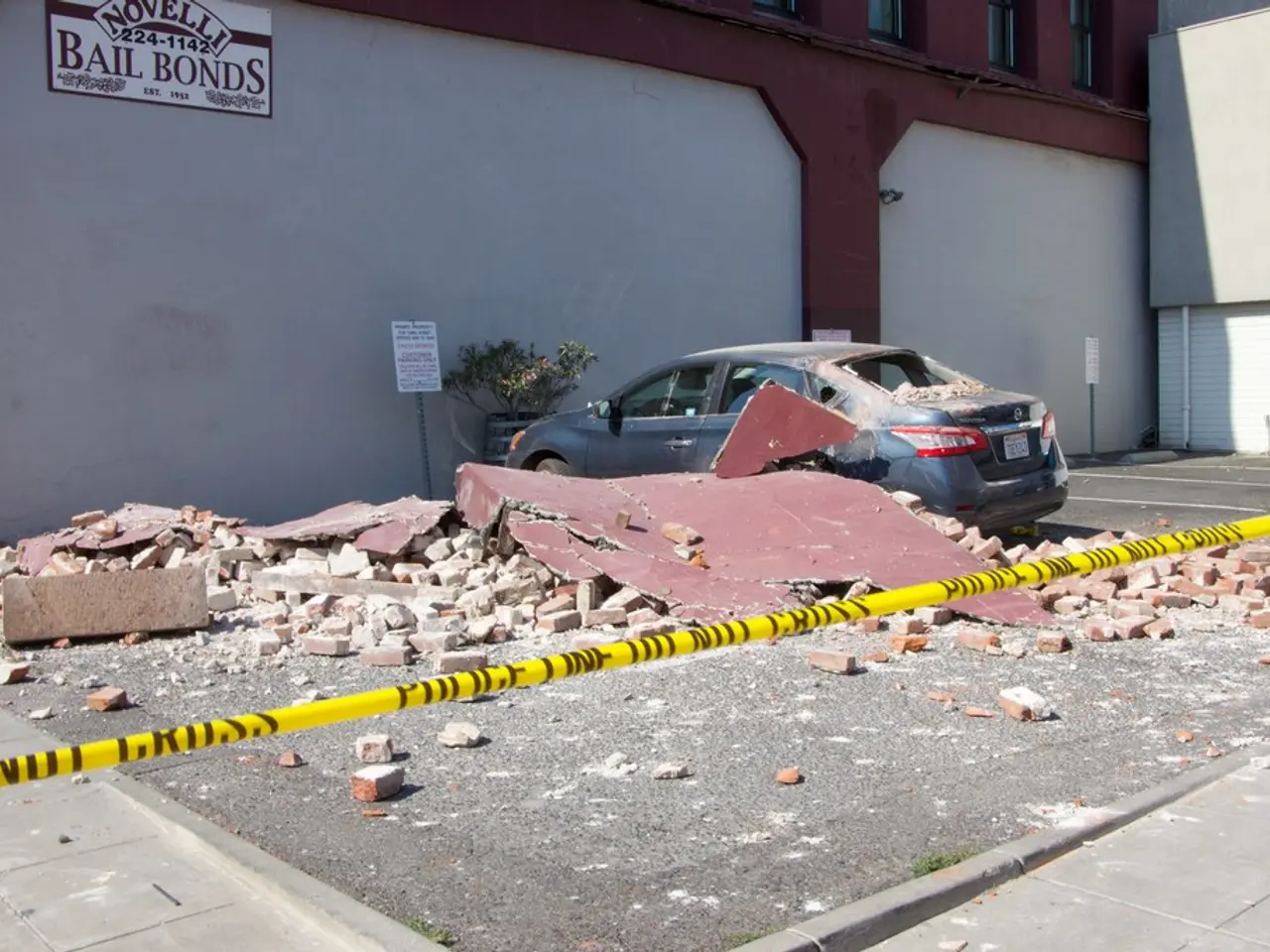Elections announced in Rhineland: The Rhineland Chamber of Commerce expresses support for the upcoming polls aimed at economic growth
In the industrial heartland of Rhineland, Germany, businesses are grappling with a complex web of economic concerns. The current landscape centres around increased costs, supply chain disruptions, tariff risks, and capacity constraints, which are impacting business development and international competitiveness.
Jürgen Steinmetz, CEO of the Industry and Commerce Chamber (IHK) Mittlerer Niederrhein, has voiced his concern, stating that politics is a major growth brake. Companies in the region are expressing dissatisfaction over issues such as dilapidated infrastructure, high energy costs, excessive bureaucracy, and counteracting bureaucracy reduction laws by new EU requirements like sustainability reporting.
The introduction of higher US tariffs (up to 30% on some EU goods starting August 2025) poses a significant threat to exports from Rhineland. This tariff increase could reduce demand and competitiveness of German industrial exports in the crucial US market. Ongoing port congestion in major Northern European ports, including Hamburg and Bremerhaven, is causing shipment delays, higher logistics costs, and supply chain bottlenecks. These disruptions have contributed to rising prices for key imported input materials, such as gelatin, used in pharmaceuticals and food sectors, increasing input costs for businesses.
While challenges exist, the German government’s expanded fiscal spending, including a substantial boost to defense and infrastructure projects, offers potential medium-term growth benefits. This fiscal support aims to improve capacity and modernize supply chains, indirectly benefiting companies by improving transport infrastructure and stimulating demand. However, capacity bottlenecks in defense production and related sectors remain a challenge as backlogs and retooling of civilian plants add complexity.
Though consumer spending showed resilience (with retail sales growing strongly in mid-2025), overall industrial demand remains uneven and economic output stagnated recently. The construction sector is expected to contract, further dampening growth. Regional disparities in inflation and economic conditions persist within Germany, which may influence local business conditions differently across the Rhineland.
Companies in the Rhineland face higher operational risks and must adapt strategies around supply chain diversification, cost management, and innovation to maintain competitiveness. The uncertainty from trade policies requires firms to hedge risks, while potential gains from government investment and strong retail demand could support selective growth and development.
In some industries such as metal and electrical industry, mechanical and vehicle engineering, production-oriented wholesale trade, and the media and communications industry, the business situation is particularly poor. On the other hand, the credit and insurance industry, IT industry, and construction industry report a positive business situation, but expect it to deteriorate in the future. The food industry and the consulting industry still have more positive assessments of the situation, but expect it to deteriorate in the future as well.
The skills shortage remains high, with many companies unable to fill open positions for months. Most of the problems are homegrown, according to Gregor Berghausen, CEO of the IHK Düsseldorf initiative. The overall negative picture suggests that the trough has not yet been reached, with only 17.2% of companies expecting an improvement for the coming year, while 27.3% expect a further deterioration.
In conclusion, Rhineland companies are balancing the negative impacts of higher tariffs, supply chain strains, and rising costs against the opportunities presented by increased government investment and resilient domestic consumption. These mixed conditions challenge their international competitiveness but also incentivize strategic adaptation to maintain growth and market position.
Businesses in Rhineland are expressing concerns about politics being a major growth brake, as Jürgen Steinmetz, CEO of the Industry and Commerce Chamber (IHK) Mittlerer Niederrhein, stated. Companies are dissatisfied with issues such as dilapidated infrastructure, high energy costs, excessive bureaucracy, and counteracting bureaucracy reduction laws by new EU requirements like sustainability reporting.
The ongoing port congestion in major Northern European ports, including Hamburg and Bremerhaven, is causing supply chain bottlenecks for many Rhineland companies, leading to higher logistics costs and shipment delays. Simultaneously, the introduction of higher US tariffs poses a significant threat to exports from Rhineland, potentially reducing demand and competitiveness in the crucial US market.
